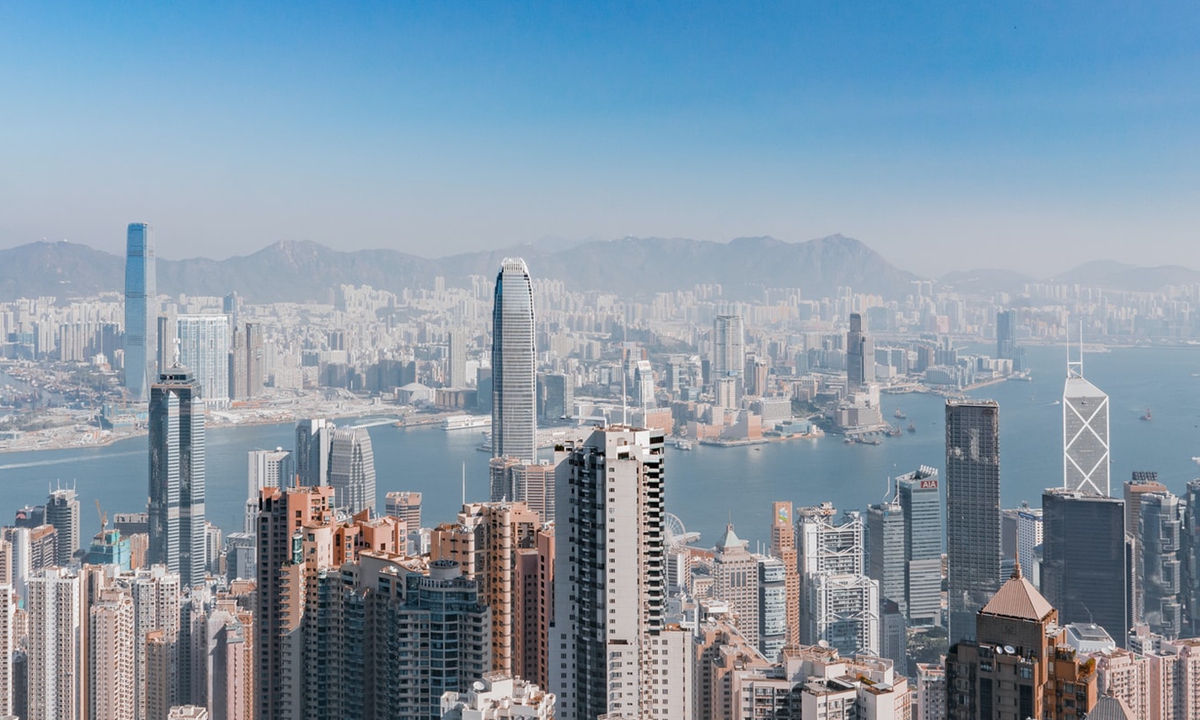HK needs to consolidate position as international financial center

File photo
After major economic indicators showed a weak performance for more than one year, the Hong Kong Special Administrative Region's (HKSAR's) exports rebounded the most in nearly two years in September on the back of a recovering Chinese mainland economy.
With a 17-percent year-on-year growth rate of exports to the mainland, HKSAR's total exports were up 9.1 percent year-on-year in September, according to data released by the HKSAR government.
However, Hong Kong residents' COVID-hit livelihoods still face considerable challenges. Hong Kong needs to continue consolidating and developing its international competitiveness both amid and after the epidemic.
For starters, epidemic control and prevention form the preconditions for Hong Kong's economic recovery. Until safe and effective vaccines are developed, the pandemic will be difficult to be effectively controlled around the world. With the aviation industry in many countries and regions almost at a standstill, as one of the international aviation hubs, Hong Kong's economy and labor market have been greatly affected.
Hong Kong's economy is not large enough for it to rely solely on internal circulation to withstand the COVID-19 impact. If Hong Kong is unable to resume normal economic, trade and personnel exchanges with the mainland, service industries like tourism will be even more depressed. Therefore, the city needs to efficiently carry out broad-based nucleic acid tests and promote health codes, so as to achieve zero local infections and effectively prevent and control the epidemic.
Secondly, Hong Kong needs to guarantee its position as a leading international financial center. In a low global interest rate environment, the US stock market performed much better than its real economy. Although the Hang Seng Index didn't follow the strong performance of the US stock market, Hong Kong's stock market has seen great performances in IPOs and resource allocation for the new economy. Hong Kong also hosts many financial and legal experts, who can serve as a talent pool for the financial industry.
Hong Kong's financial industry still enjoys advantages in four aspects amid the epidemic.
First, it has the huge and active market of the mainland, whose quality companies with great growth prospects will choose to list in Hong Kong. Second, Hong Kong is connected to the world in terms of the legal, accounting and audit sectors, as well as convenient information exchanges. Three, the HKSAR has abundant local funds. It's convenient for international fund flows, and it is attractive to international investors. Four, in Hong Kong, Chinese companies can avoid the political risks of listing in the US.
These advantages show that Hong Kong's position as an international financial center is solid and durable, which is part of its global competitiveness.
Thirdly, Hong Kong needs to find new growth points. Compared with 1997, Hong Kong's leading companies are still mostly developed in the real estate industry. This shows that Hong Kong's new economy hasn't replaced the old economy, and its social mobility is not high enough. Real estate and financial industry capital still exceed that of other sectors, largely dominating the distribution of assets.
Objectively speaking, the real estate industry generates huge profits, and capital tends to skip other long-term investment projects. The excessive concentration of savings or investment in the real estate market, the large scale of the real estate industry, and high rents have become a bottleneck for the further development of Hong Kong's economy.
To find new growth points, it's feasible for Hong Kong's technology, scientific and innovation development to combine with the mainland's strategy of the Greater Bay Area development. In forming a new growth system, and consolidating its position as an international financial center, Hong Kong will create more jobs with high added value, and it will consolidate and develop its international competitiveness.
The author is a veteran Hong Kong observer. bizopinion@globaltimes.com.cn